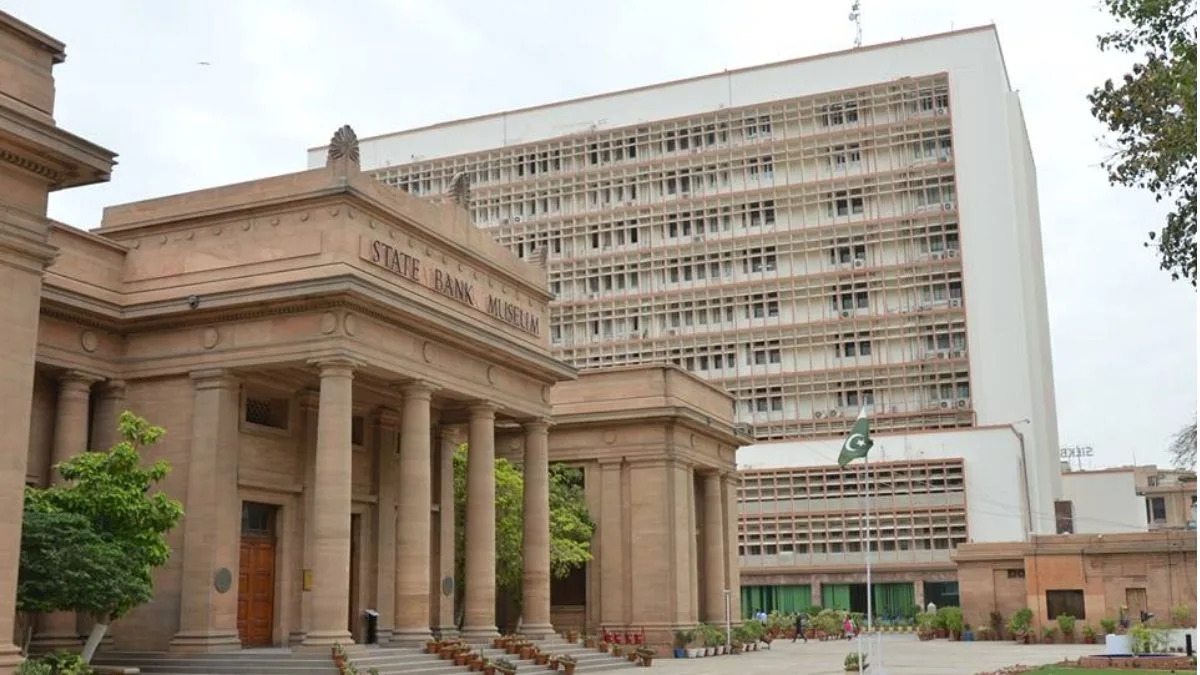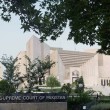KARACHI, Pakistan: The State Bank of Pakistan (SBP) on Monday released its Annual Report on the State of Pakistan’s Economy for the Fiscal Year 2022-23.
According to the report, Pakistan’s economy faced multiple challenges during FY23 as longstanding structural weaknesses exacerbated the impact of successive domestic and global supply shocks of unprecedented nature.
The Country’s macroeconomic situation had already begun to deteriorate since the second half of FY22 in the aftermath of the Russia-Ukraine conflict, elevated global commodity prices and an unplanned fiscal expansion.
The situation worsened during FY23 owing to floods, delay in the completion of the 9th review of the IMF’s Extended Fund Facility (EFF) program, continuing domestic uncertainty, and tightening global financial conditions.
Particularly, the devastating monsoon floods significantly dented economic activity, fueled inflationary pressures, increased stress on external account and widened fiscal imbalance because of spending on relief efforts.
Similarly, the uncertain global economic and financial conditions, softening – but still elevated – global commodity prices, higher debt servicing and reduced external inflows had implications for various sectors of the economy.
Click Here to read full SBP’s Annual Report 2022-2023
The confluence of these developments substantially weakened Pakistan’s macroeconomic performance during FY23. The real GDP growth fell to the third-lowest level since FY52 whereas average National CPI inflation spiked to a multi-decade high.
While the current account deficit narrowed considerably, limited foreign inflows maintained pressures on the external account leading to a decline in SBP’s FX reserves. Meanwhile, reflecting the unsustainable fiscal policy stance of the past many years, a sharp increase in interest payments, persistently large energy subsidies and lower than-targeted tax collection contributed to less than envisaged fiscal consolidation during FY23.
The report notes that Pakistan’s economic performance in FY23 highlights the importance of addressing perennial structural impediments that pose serious risks to country’s macroeconomic stability. The foremost among these are inadequate and slow tax policy reforms that have constricted the resource envelope, even for meeting current expenditures.
On the other hand, inefficiencies in public sector enterprises (PSEs) have led to a permanent drain on fiscal resources. These have squeezed space for development spending required to enhance the economy’s productive capacity. The anemic investment in physical and human capital as well as R&D has impeded development of a technology intensive manufacturing base and the next level value-added exports.
Moreover, stagnant crop yields and lack of attention to development of food supply chain and to address food market imperfections have led to sustained reliance on imported food commodities. These trends underpin the unsustainable current account balance, which has increased the country’s vulnerability to global supply shocks.
The report indicates that this situation requires initiation of broad ranging reforms to address various sectoral imbalances to ensure availability of resources for economic growth and development.
Specifically, expediting tax policy reforms and speedy implementation of governance reforms in PSEs is instrumental to create fiscal space for public investment in human and physical capital.
Furthermore, there is also a need to create a conducive environment to support foreign direct investment in exportable sectors, and to encourage technology transfers. Similarly, agriculture sector reforms are required to alleviate import reliance and for achieving price stability. There is a need to expedite these reforms to achieve a high and sustainable economic growth required to absorb the new entrants in labor market, improve social welfare and raise the general standard of living in the country.
In this context, the availability of factual information on key macroeconomic variables, markets, businesses, and individual welfare are important ingredients for evidence-based policy making.
This report includes a special chapter on the need to streamline the state of Pakistan’s National Statistical System (NSS) and identifies some suggestions for NSS reforms.
The report highlights that Pakistan’s economic situation has started to show some early signs of improvement.
The Country was able to secure a US$ 3.0 billion Stand-By Arrangement (SBA) from IMF, towards the end of FY23, which helped in alleviating near-term risks to external sector.
The high frequency indicators are suggesting bottoming out of economic activity from July 2023.
The withdrawal of guidance on import prioritisation, alongside gradual ease in FX position, is expected to somewhat ameliorate supply chain situation and lift growth in LSM as well as exports.
Moreover, an expected rebound in cotton and rice production will support agriculture growth in FY24. Reflecting these considerations, the SBP expects real GDP growth in the range of 2 – 3 percent in FY24.
The lagged impact of monetary tightening, and other contractionary measures, is expected to keep domestic demand in check.
Furthermore, the prospects of improvement in supply situation on account of likely increase in production of important crops and imports is expected to bring down inflation in the range of 20.0 – 22.0 percent in FY24. Slightly improved global and domestic growth prospects are expected to bolster foreign exchange earnings from exports of goods and services.
Although import volumes are likely to increase, lower commodity prices may prevent a significant expansion in imports bill during FY24.
Accounting for these factors, the State Bank projects the current account deficit to fall in the range of 0.5 – 1.5 percent of GDP in FY24.





